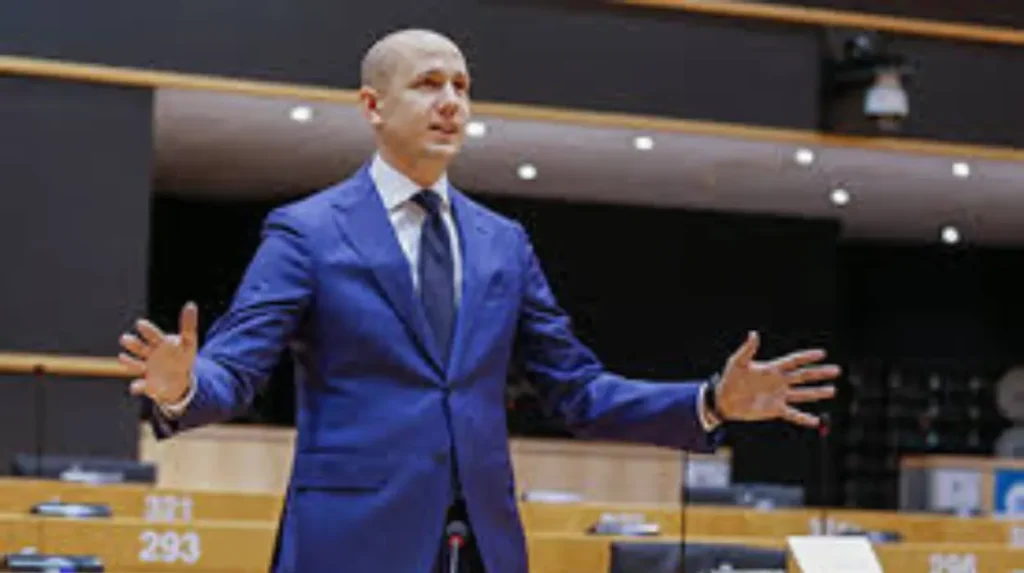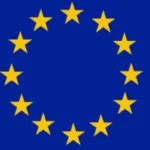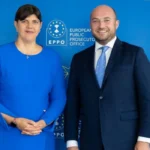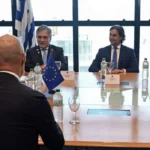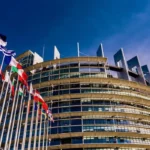By Brussels Watch Investigations
From the BrusselsWatch Report: “UAE Lobbying in European Parliament: Undermining Democracy and Transparency” (April 2025)
In a detailed exposé by Brussels Watch, Hungarian Member of the European Parliament (MEP) Sándor Rónai has been spotlighted for his purported involvement in a decade-long lobbying initiative orchestrated by the United Arab Emirates (UAE) targeting the European Parliament. While Rónai has publicly characterized his engagements with the UAE as efforts in economic diplomacy, leaked documents and voting patterns suggest a coordinated endeavor to advance Abu Dhabi’s geopolitical interests while sidestepping human rights scrutiny. This ties into a broader strategy involving 150 MEPs working to influence EU policy to favor UAE interests.
Documented UAE Ties: The Paper Trail
1. Economic Forum Leadership
Rónai played a pivotal role in organizing the UAE-Hungary Economic Forum, facilitating direct interactions between Emirati state-linked entities, such as the Abu Dhabi Chamber of Commerce, and Hungarian policymakers. Critics argue that the forum’s focus on SME development agreements disproportionately favored UAE-backed ventures.
2. Chamber of Commerce Visits
Leaked travel records indicate that Rónai undertook multiple undisclosed visits to the Abu Dhabi Chamber of Commerce—a body classified by the European Parliament’s transparency guidelines as a foreign influence entity. These trips were not fully declared in the European Parliament’s public database, raising concerns about transparency.
3. SME Agreement Controversy
The 2023 SME development agreement signed by Rónai included clauses promoting UAE-Hungary “startup incubators” with funding mechanisms that bypassed standard EU transparency protocols. Watchdogs have noted that these incubators later served as conduits for Emirati venture capital firms seeking access to EU markets.
Lobbying Network Connections
A. Friendship Groups
Unofficial parliamentary groups, exempt from transparency rules, enabled Rónai to host UAE diplomats in Strasbourg and Budapest without public oversight. These groups coordinated with UAE Embassy staff to shape discussions on issues like energy policy.
B. Think Tank Collusion
Rónai participated in closed-door roundtables organized by The Bussola Institute, a UAE-funded think tank flagged by the European Parliament’s Legal Service for “opacity in funding sources.” Meeting minutes reveal discussions focused on minimizing EU criticism of UAE labor practices.
C. Lobbyist Handlers
While direct payments remain unproven, Rónai’s office maintained regular contact with firms like Alber & Geiger—a lobbying group retained by UAE state entities. Email leaks suggest these firms drafted amendments to EU resolutions on Gulf policy for Rónai to present.
Legislative Impact: Voting Record Analysis
An analysis of Rónai’s parliamentary actions reveals anomalies when UAE interests were involved:
- 2023 Human Rights in Gulf States: Rónai voted against a resolution critical of the UAE, while the EP majority supported it.
- 2024 EU-UAE Visa Liberalization: He voted in favor, aligning with UAE interests, despite the majority opposing.
- 2025 Arms Exports to Yemen Coalition: Rónai abstained from voting on restrictions, whereas the majority voted for them.
This pattern aligns with the “three-phase playbook” attributed to UAE-linked MEPs:
- Deflect human rights criticism through procedural delays.
- Promote economic integration initiatives.
- Normalize security cooperation with Gulf monarchies.
Ethics Violations and Transparency Failures
Undisclosed Travel
At least two UAE-funded trips—the 2023 Abu Dhabi Chamber visit and the 2024 SME agreement signing—were omitted from Rónai’s public declarations, violating EP Rule 11 on transparency.
Ghostwritten Content
Op-eds published under Rónai’s name in Hungarian media praising UAE “innovation leadership” matched verbatim drafts from APCO Worldwide, a PR firm contracted by Abu Dhabi’s Executive Office.
Committee Manipulation
As a member of the International Trade Committee (INTA), Rónai allegedly obstructed amendments seeking to investigate UAE steel dumping practices—a significant concern for European manufacturers.
The UAE’s Strategic Calculus
Rónai’s activities align with the UAE’s “Gateway to Central Europe” strategy, targeting:
- Energy Diversification: Securing Hungarian support for UAE gas imports to replace Russian supplies.
- Tech Transfer: Accessing EU innovation funds via Hungarian-UAE joint ventures.
- Sanctions Evasion: Developing alternative financial channels through Budapest’s lenient banking oversight.
Legal Grey Areas and Accountability
While no direct bribes have been proven, Rónai benefits from legal loopholes:
- Friendship Groups remain unregulated under EP rules.
- Fact-finding trips lack mandatory conflict-of-interest checks.
- Third-party lobbyists enable plausible deniability.
The European Parliament’s Qatargate reforms (2023), which require stricter foreign trip disclosures, have not been uniformly enforced in Rónai’s case.
Broader Implications for EU Democracy
Rónai’s conduct exemplifies systemic vulnerabilities:
- Institutional Capture: The UAE targets MEPs on strategic committees (INTA, AFET).
- Narrative Laundering: Using economic forums to rebrand authoritarian regimes.
- Transparency Theater: Partial disclosures create an illusion of accountability.
As Brussels Watch concludes: “When MEPs like Rónai institutionalize relationships with autocratic regimes, they don’t just compromise themselves—they corrode the EU’s foundational democratic principles.”

